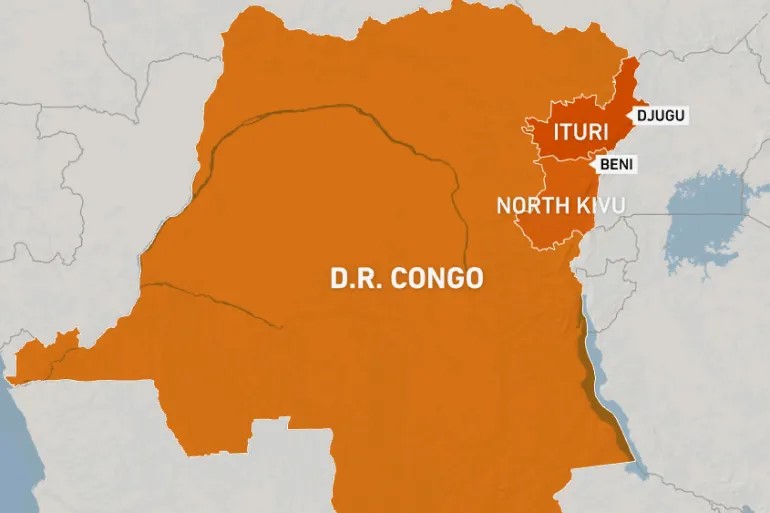
At Least 38 Dead in Church Attack in Eastern Democratic Republic of Congo

 :
| Updated On: 28-Jul-2025 @ 2:18 pm
:
| Updated On: 28-Jul-2025 @ 2:18 pmSHARE
At least 38 people were killed and 15 others injured in a brutal attack on a Catholic church in Komanda, a city in the Ituri province of eastern Democratic Republic of the Congo (DRC). The incident occurred early on Sunday and was reportedly carried out by suspected members of the Allied Democratic Forces (ADF), an extremist rebel group armed with guns and machetes. The attack targeted Catholic worshippers participating in a night prayer vigil organized by the Caritas charity.
The ADF, which has ties to the Islamic State (ISIL/ISIS), has long operated in the border region between Uganda and the DRC and is known for its repeated attacks on civilian populations. During the Komanda church attack, not only were worshippers assaulted, but several nearby houses and shops were also burned down. Many people remain missing following the incident. DRC’s Radio Okapi later reported that the death toll had risen to 43, indicating that over 20 victims were killed with bladed weapons during the vigil, and additional bodies were discovered in the surrounding burned buildings.
Human rights activist Christophe Munyanderu, who was at the scene, confirmed that the assailants targeted Christians who had stayed overnight in the church, and that they were killed using machetes and firearms. DRC military spokesperson Jules Ngongo stated that armed men with machetes had infiltrated the church near Komanda, confirming the involvement of the ADF.
A civil society leader, Dieudonne Duranthabo, told the Associated Press that bodies were found both inside and outside the church, and at least three charred bodies were recovered. He added that the search for more victims was ongoing. Duranthabo expressed frustration and disappointment that such an attack could occur in a town that was supposedly under the watch of the security forces. He also noted that many residents had fled Komanda, seeking safety in the nearby town of Bunia. He called for immediate military intervention, stating that the threat from the attackers still loomed near their community.
The United Nations Organisation Stabilisation Mission in the DRC condemned the recent increase in violence in Ituri province. Earlier in the same month, the ADF had killed dozens in another massacre in the region, which the UN described as a “bloodbath.”
The ADF originated in Uganda in the late 1990s, formed by small radical groups dissatisfied with President Yoweri Museveni’s leadership. Following military action by Ugandan forces in 2002, the group moved its base to eastern DRC. Since then, it has been responsible for thousands of civilian deaths. In 2019, the ADF pledged allegiance to ISIL, further radicalizing its ideology and tactics.
The group’s leadership has stated that their objective is to establish a hardline Islamist state in East Africa. Despite numerous efforts by the DRC army to eliminate the ADF threat, the group remains resilient. The security situation has further deteriorated with the resurgence of the Rwanda-backed M23 rebels, creating a complex web of violence and instability in the region.
The situation in eastern DRC remains tense, with civilians continuing to bear the brunt of extremist violence.